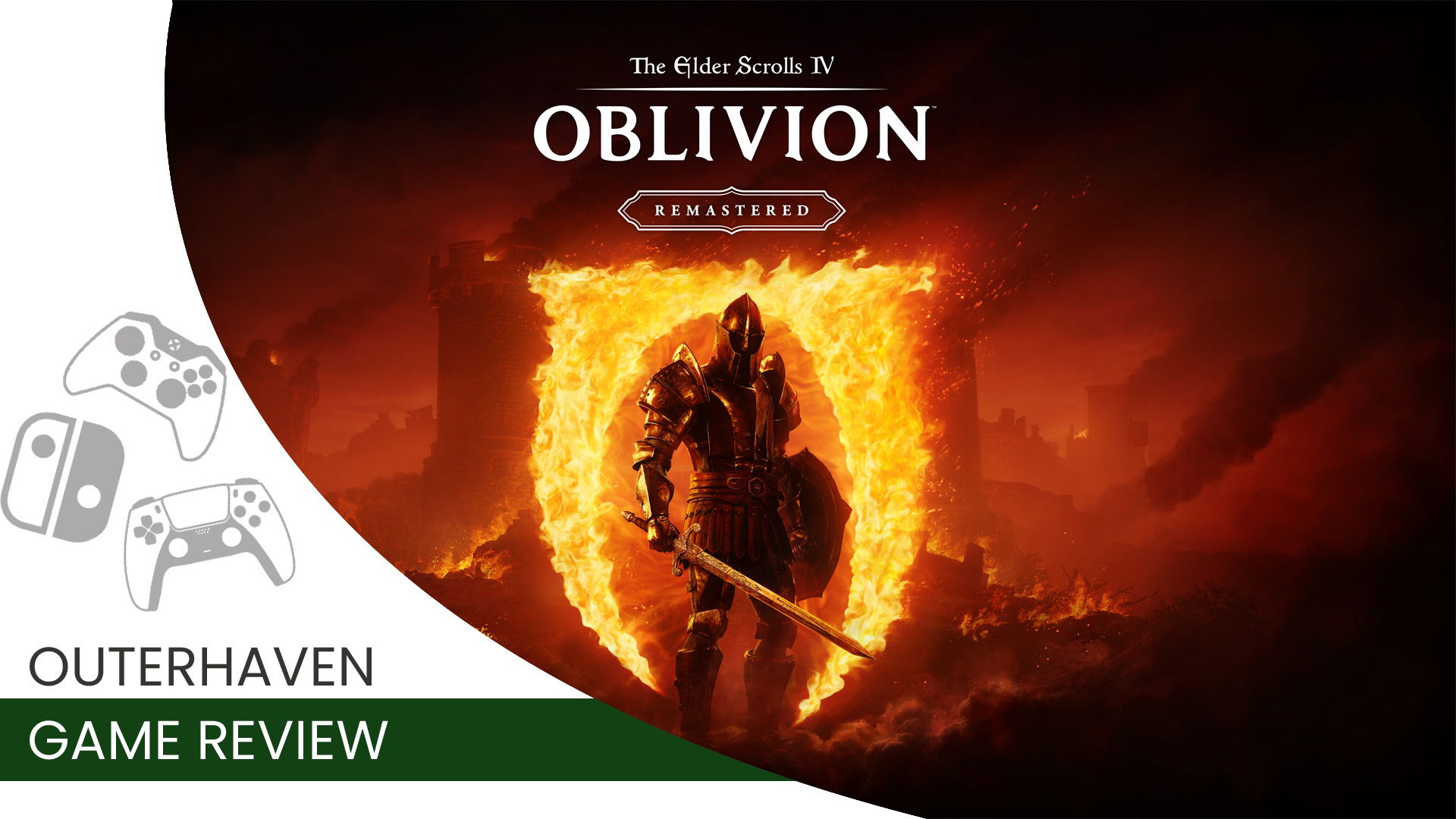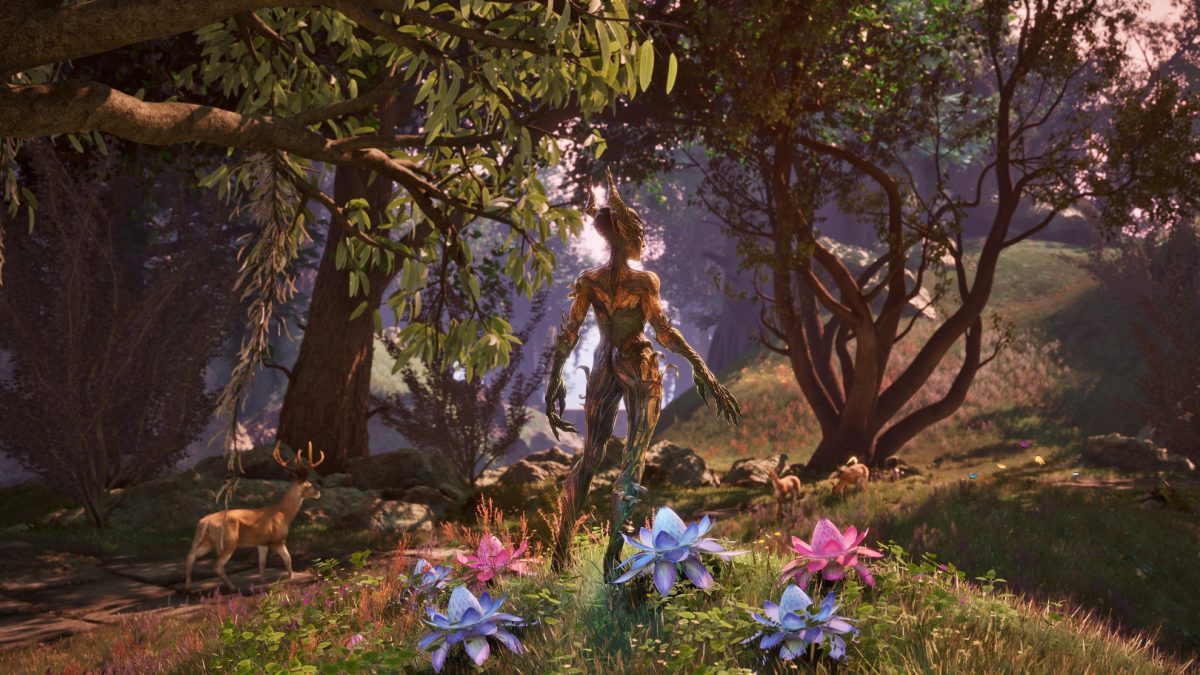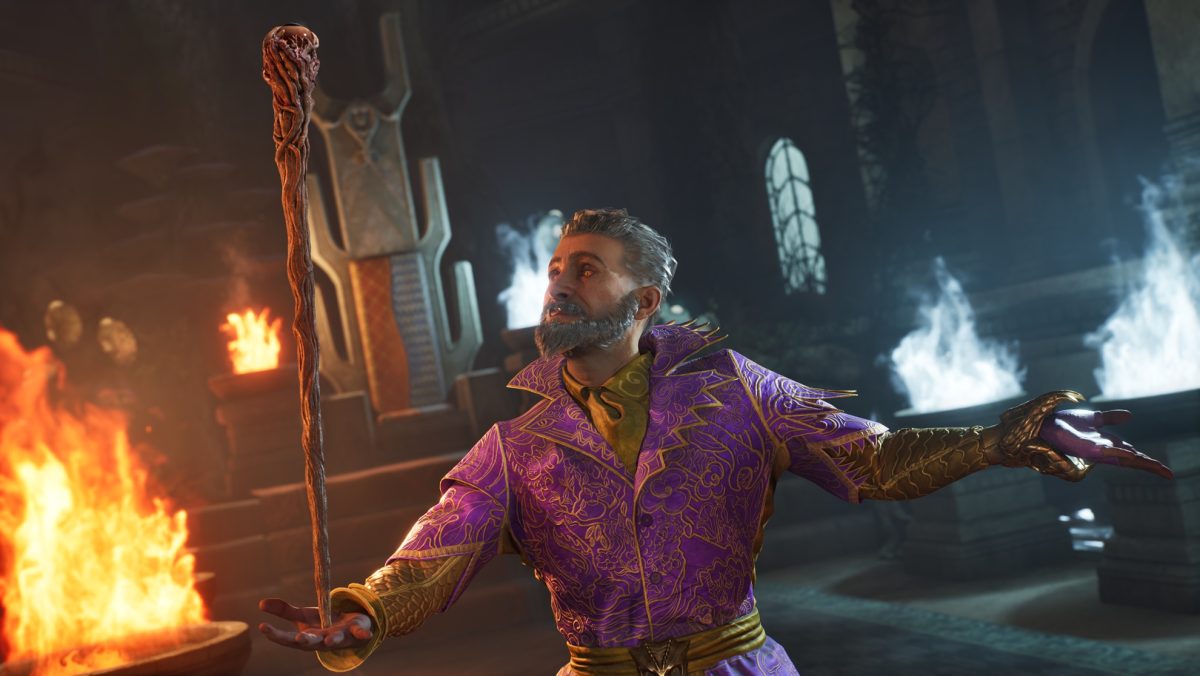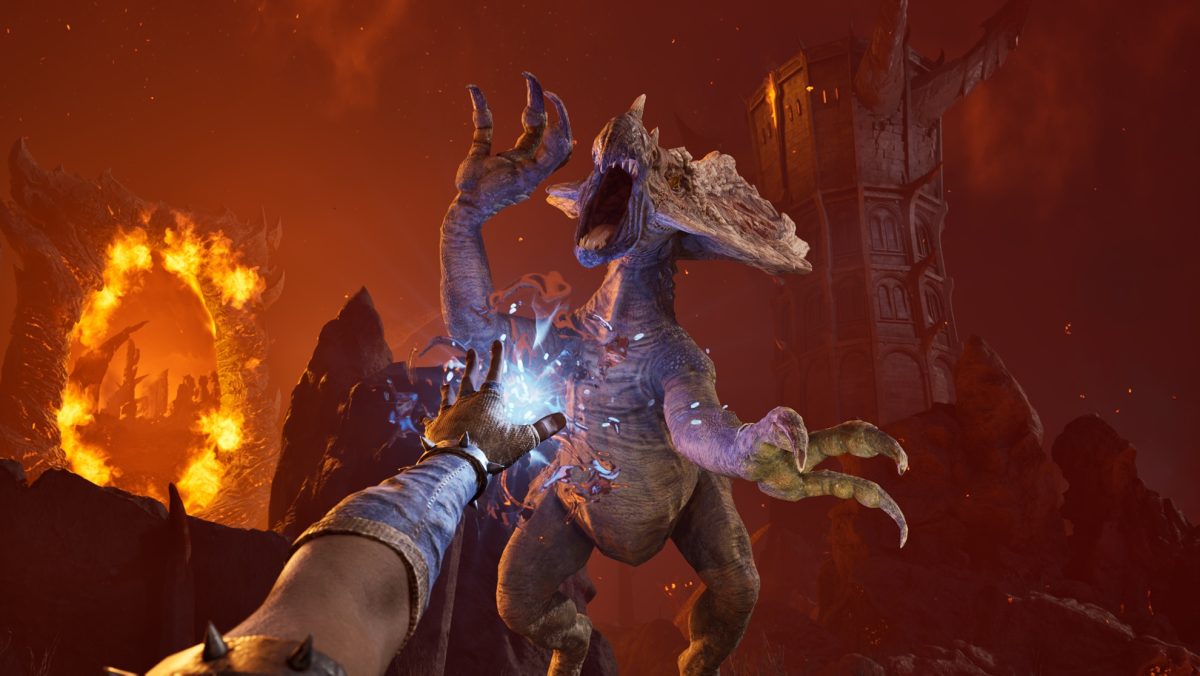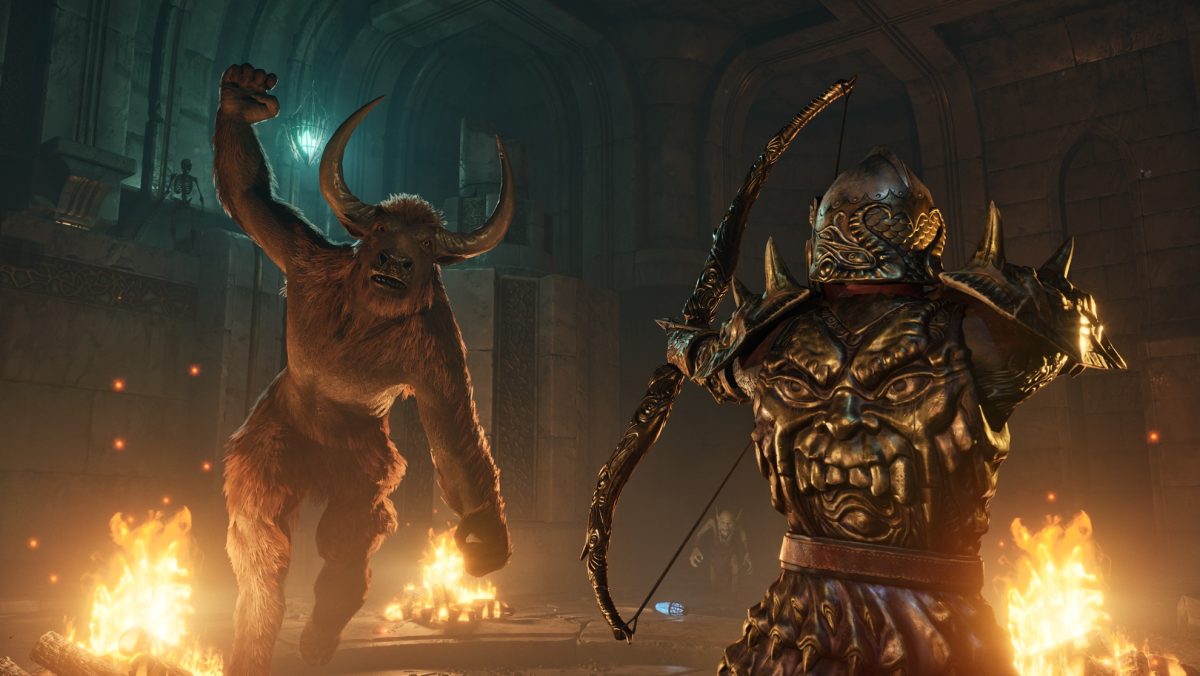The Elder Scrolls IV: Oblivion has had a lasting impact on the RPG genre since its 2006 launch. Touted as one of the greatest RPGs of all time, it seemed only fitting for this classic to be brought out of the crates and polished for current-gen audiences. Oblivion was well-received in its time, alongside other stellar Western RPGs such as Jade Empire, which also made their way to consoles to share their stories. With former titles reappearing for a new generation to experience, Oblivion returned last month in 2025 in remastered form. The full tale of Oblivion, with a fresh coat of paint, arrived as a stealth release that no one saw coming in The Elder Scrolls IV: Oblivion Remastered.
Name: The Elder Scrolls IV: Oblivion Remastered
Platform(s): PC, PlayStation 5, Xbox Series X (reviewed)
Developer: Bethesda, Virtuos
Publisher: Bethesda
Game Type: RPG
Mode(s): Single-Player
Release Date: April 25, 2025
Return to Oblivion Cyrodiil
Septim’s death at the hands of assailants causes strife within the realm of Cyrodiil on the continent of Tamriel. Due to this and a chance encounter, the hero is tasked with taking on the Mythic Dawn—those responsible for attempting to merge the mortal world with a demonic realm called Paradise. Gates begin to spawn all over the country, and it’s up to the player to close them by taking a wild journey through each one. Soldiers, civilians, and even beggars are ready and willing to offer quests that often connect with others in surprising ways.
Thanks to a wide range of paths, factions, and story choices, shaping your own journey to the end feels more accessible than ever. Combat can be surprisingly entertaining. Creativity is encouraged, whether you’re exploiting the system or combining spells and potions to overpower enemies. There are ten races to choose from, and you even have the option to create your own unique class, which is still an impressive feature today.
The environments in Oblivion Remastered are lush and detailed. It’s striking to see distant mountains clearly, and the map is filled with hills, valleys, and dynamic weather patterns ranging from snow to rain. There’s always something to discover; hidden caves, shrines, cities, and more. While plant and tree collision may not be perfect, the atmosphere consistently sets the right tone, especially in moody areas like caves.
Oblivion is The Game of Thrones, Spider-Man 2, and Star Trek, In One Fell Sword Swing
The Oblivion Remastered voiceover cast features an all-star lineup, from classic Wonder Woman star Lynda Carter to Game of Thrones actor Sean Bean. Spider-Man 2’s Alfred Molina also appears in Tamriel, along with Underworld’s Kate Beckinsale. Bethesda has never had trouble securing top-tier talent for its titles. Even Star Trek’s Captain Picard, Sir Patrick Stewart, is among the voiceover ranks. It always feels like Bethesda wants to start strong. Personally, it reminded me of the late Christopher Plummer’s role in Skyrim, which carried the same gravitas as Malcolm X, in its own way.
The sense of freedom really kicks in once the tutorial dungeon is cleared. Sure, there’s a main quest, but the open-world experience of roaming vast areas, soaking in the scenery, and clashing with bandits always brings a smile to my face. Thanks to the updated UI, quest tracking is streamlined with a single active objective and clear map markers. There is no need to feel overwhelmed by a flood of tiny triangles on your compass. Once you complete a task, a journal entry immediately updates with your next objective. Beyond that, you are free to explore nearly any corner of the world—or rather, region.
Leveling up your character in Oblivion Remastered can be as simple as performing certain actions repeatedly, such as crouching to improve your Sneak skill. It is refreshing that you are not forced to rely solely on combat to progress. Everything you do contributes to your growth in some way. Even breaking into a house and stealing goods can help develop your character.
The Missteps of the Oblivion Masterpiece
The usual Bethesda quirks are still present in Oblivion Remastered, just like in other titles developed by the RPG side of the company. Repetitive dialogue and overused voice actors are common here. After Sir Patrick Stewart delivers his lines and the tutorial ends, the game quickly introduces these familiar issues. In one quest, I could swear two characters sounded exactly the same, even though they were standing close to each other. It left me confused about who was who. Wes Johnson may as well have been talking to himself.
Characters often repeat the same lines about quest beats, even during combat. It feels like every NPC was given the same script to follow. This became especially frustrating when I needed help from a stranger to complete a task. Instead of getting the assistance I expected, I ran into the same kind of awkward exchanges that Viva La Dirt League often mocks in their RPG skits. The classic “everyone talks at once” problem is also present, making the NPCs more noisy than helpful. I always thought this started with Skyrim, but it seems like it’s been part of The Elder Scrolls series for much longer.
Enemies scale as your character levels up, but sometimes they gain better gear or abilities than you do. In some cases, the death of an important NPC isn’t acknowledged at all, which can make the story feel disconnected. I found myself reloading saves just to confirm I hadn’t missed anything. It reminded me of how Fire Emblem: Three Houses handled student deaths, where some were met with emotion and others with complete silence. Occasionally, a noble character might get a proper farewell after a failed escape, but those moments are rare.
As a first-time player, I encountered several bugs during my playthrough of Oblivion Remastered. Enemies would sometimes fly through the air in slow motion after being hit. One imp was struck by an NPC and became frozen mid-air after dying. It just stayed there, lifeless, like a budget version of The Matrix. I was able to loot it, but there were no physics applied. In another case, I was stopped on the way to a stronghold after a battle. A guard caught me stealing, and after I agreed to pay the fine, the game suddenly crashed and returned me to the home screen. There were also times when a completed objective didn’t trigger the next step in a quest, forcing me to reload a save to move forward, even when the hints suggested it should have continued.
Conclusion
Elder Scrolls IV: Oblivion Remastered is faithful enough to stick to its original, award-winning vision, but with a new lease of life. For better or worse, Oblivion is a 2006 game first and foremost, and Bethesda isn’t shy of letting this be known. With the Shivering Isles and Knights of the Nine available, returning to Cyrodiil seems to hold the good and the bugs of the original. Oblivion Remastered is a nostalgic trip that needs to be had by Western RPG adventurers. As many await Elder Scrolls VI, clinging to hope for a quicker release date for dear life (Skyrim Grandma, I’m sure it’s coming): a trip back to Cyrodiil in Oblivion Remastered might be a decent detour.
Review Disclosure Statement: The Elder Scrolls IV: Oblivion was provided to us by Bethesda for review purposes. For more information on how we review video games and other media/technology, please review our Review Guideline/Scoring Policy for more details.
Oblivion makes a return to the spotlight after decades of Skyrim hogging it… Wait… Why am I on a cart? NOOOOOOOOOO!!!
Just kidding. This game is great and is something that should have been given the remaster treatment years ago. Oblivion shows that you can take something old and make it look new again… Now how many times will this be ported to anything with a screen?
Pros
- Faithful to its’ original game
- A branching set of quests with a huge map to undertake
- Updated UI
- vivid graphical improvements
- all expansions such as Shivering Isles and Knights of the Nine stories.
Cons
- Game breaking bugs are still rampant
- Overly repetitive NPC dialogue
- Still holds the charm of the 2006 game.


